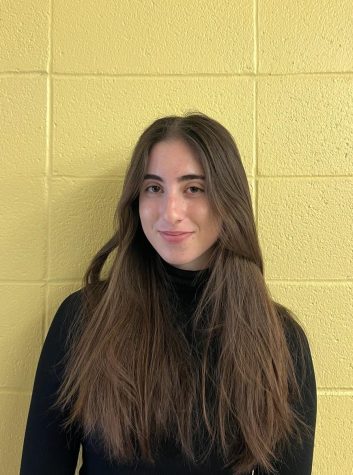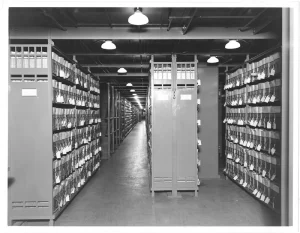T for Tense: How Tenafly Treats Academics
How Much Pressure Is Too Much?
April 14, 2021
When walking into the short brick building on Columbus Drive, there’s nothing peculiar about Tenafly High School. There’s no reason to see it as anything other than a regular public high school in suburban New Jersey. But past the chatter of students, the singing from the chorus room, and the shuffling of feet that mask the place as a regular school, one will find that the academic climate is always at an all-time high. Little do we know of the pressure building up inside of students just waiting to burst forth.
Ranked as #13 in New Jersey High schools, #72 in New York/NY Metro Area Schools, and #542 in National Rankings overall by U.S. News & World Report, Tenafly High School is notable for taking its academics seriously. This ranking, which gives Tenafly the title of “high-achieving,” fosters a competitive environment among many students at the expense of their mental, physical, and emotional well-being. With this degree of pressure, how much pressure is too much?
Jessica Kim (’23) doesn’t reflect upon the academic pressure that has always seemed to plague her and her classmates fondly. “I remember one of the last-year sophomores ‘sleeping’ (just closing her eyes for a bit) on a music stand during band because she was so tired from school,” Kim recalls, “Academic pressure in Tenafly makes students want to do better, but it also takes a toll on their physical and mental health.”
U.S. News also states that 71% of students take AP classes, the graduation rate is 98%, and only 3% of students are economically disadvantaged. In this seemingly well-to-do town on the fringe of New York City, all attention is directed toward the school’s academics by both parents and students alike. Stressing about possible pop-essays and quizzes, studying during lunch time (pre-COVID), and frantically checking notes on the way to class are just some of the many regular occurrences to be found in Tenafly High School life.
For Eunice Koo (’21), academic pressure has definitely played a key role in her experience as a Tenafly student. Having lived in Tenafly for six years, taken three AP courses last year, and taking four this year, Koo has said that seeing other people take challenging courses makes others willing to take them, as well, through peer pressure: “There is pressure at Tenafly to take [AP and Honors courses], not officially, but kind of just amongst your peers.”
During their high school years, Tenafly students feel constant pressure to resume-build, grasping each and every opportunity to reach the “top.” This demanding learning environment not only induces stress, but also eliminates the notion of participating in any activity out of pure enjoyment. It starts to become a race and a competition for holding an officer position in a club or being captain of a sports team. Thus, activities once deemed stress-reducers, like playing a sport or joining the band, are reduced to nothing more than obligations; one more rung in the ladder of success.
According to Challenge Success, a non-profit organization associated with Stanford University Graduate School of Education, “83% of teens reported that school is a somewhat or significant source of stress.” Additionally, 29% of children ages 13-17 feel stressed about getting into a good college and their futures beyond high school. This stress hails from the belief—normalized by students, teachers, parents, and coaches—that there is solely one defined road toward success. This message presses on many students, making it difficult to escape this so-called bubble.
Kim has experienced this personally, the memory of which is still quite painful due to years of constant conditioning by Tenafly’s higher-ups telling her and her peers what it takes to do well in the world. “I got my first Bs last year in math, and even though I’m better with such grades now, back then, it was a whole new world,” Kim said. “I even broke down a few times because of it because I felt like I was going to fail in life because of a few Bs.” While the average grade is, in fact, a C, most Tenafly students will think of an A as average on account of the expectations Tenafly has for its students. But while expectations can be a positive motivator, in this case, they simply serve as a source of pressure that pushes students, quite literally, to their limits. “And there was also physical science,” Kim added, “which sapped the life out of me. I felt like I was the only one doing horribly on tests, so I would often study the material into the wee hours of the morning; it did not help and I just became more and more stressed.”
While it may seem that students are this pressure’s only victims, teachers are also held to high expectations. “The state imposed more and more requirements over the years, and kind of pressured us to make [the courses] even more rigorous,” Mr. Hutchinson, the History teacher of Tenafly’s highly regarded Humanities course, said. With this being his 25th year teaching at Tenafly, he has noticed a drastic shift in academic pressure over the years. At the onset of his Tenafly teaching years, there were very few AP classes. This small number increasingly grew as students felt driven to take them. “And that’s something that has changed—25 years ago it was much more relaxed.” In such time-constrained periods due to the pandemic, “the AP teachers feel enormous pressure to get their students ready for the AP tests, and that’s really hard.”
Although Koo has said being stressed over her test grades and grades in general have affected her negatively, the pressure hasn’t been too detrimental. Koo stated that it had “sort of a motivating factor” for her, and her parents have contributed to the pressure in an encouraging way. “They say like, ‘It’s okay if you get a bad grade as long as you improve the next time and get better at it,’ and I think that sort of pressure exists for a lot of Tenafly kids.” Though this kind of pressure can play a positive role, Koo says she also knows that this is not the case for other Tenafly students: “[Parents who aren’t as supportive] kind of have expectations with no support or a way to get there… and that sort of pressure is especially prevalent in Tenafly.”
Kim more-or-less agrees with Koo. “I won’t lie and say that I don’t feel any pressure from them at all,” Kim concedes. “However, they have gotten much better at being supportive of my grades and my overall academic life.” The way Kim sees it, she puts more pressure on herself than they do her, what with the invisible lines she’s drawn for herself that she feels, everyday, must be crossed. After all, why would anyone motivate themselves to study, do the work, and good grades if not because, for no rational reason, they feel that they must?
A question that must be asked is whether this degree of pressure is normal or unique to Tenafly. One answer to this would normalize our unfortunate habits, while the other would condemn them and what is expected of this town’s students. So what is the answer? Kim believes the line between the two to be relatively blurry. “I would say that this academic culture is pretty intense in Tenafly but that it is generally that way for this whole generation,” Kim said. “Compared to the surrounding districts, Tenafly definitely is more competitive in their academic nature, but this is also found throughout the whole country and throughout the world, especially in countries in Asia.” As someone who has experienced school culture in different countries, Kim has a pretty cosmopolitan viewpoint. Seeing the bigger picture, she sees Tenafly as no more than a blip in the larger problem of modern expectancy we face, today. Koo agrees with Kim’s assessment. “I think Gen Z probably does have to do with [the prevalence of academic pressure, especially] with the rise of social media and the internet,” she stated. “It’s pretty common to see… peer pressure happening online or just social media influence…”
Furthermore, Mr. Hutchinson has noted the unmatched dedication his colleagues possess that distinguishes Tenafly from other school districts. “One of the great things about our faculty is that we’re really into our subjects,” Hutchinson explained, “but that can mean we all think our subject is most important, and [therefore] we tend to lay on the work.” However, teachers have been hindered by this unprecedented school year, and are finding it especially challenging to maintain this level of dedication. “I in general this year I think everybody is working very very hard, but it’s not the same,” Mr. Hutchinson said. “The education level can’t be what it usually is.”
Now, life at THS is like never seen before for those experiencing this movie-like pandemic. Habits and customs have changed worldwide, not excluding those inside the very walls of our schools. The requirements of masks, social distancing, Zoom calls, virtual class, and countless other things have completely impacted how we now go through the school day. For better or for worse? Kim believes in the latter. “Although some may argue that the pandemic has made academics in Tenafly easier, I would have to disagree with that,” Kim argued. “For one, kids aren’t motivated anymore and they definitely don’t pay attention during online learning.” Teachers have had a difficult job keeping their students engaged, this year, from the comforts of home. It’s always harder to focus on completing work or studying notes when your cat is in your face or your phone is just within reach. “Even I, who is normally quite very fearful about not learning the material well enough, found myself playing games during classes,” Kim admitted.
There is also the problem of tests and cheating on said tests. “Teachers had to make new assessments that would be harder for the students,” Kim said, “and students had to somehow do these new and harder assessments in shorter amounts of class time.” Not so long ago, the school released a policy dictating that all closed-book tests had to be taken on E days to make it fair. However, this doesn’t prevent cheating. It simply allows everyone to cheat. How fitting. The school’s real attempt at eliminating cheating came in the form of Lightspeed Systems. “The school tried to implement a spyware system on their own students to stop [cheating],” Kim said, “which would have been a huge invasion of privacy. If everything was normal, these things would not have happened.” In the end, the school ended up postponing the use of Lightspeed Systems until further notice because of the negative response students and teachers had to the proposal.
In this whirlwind of papers and pens, it’s hard to see through the clutter to how the actions of this world truly affect those crushed by it. However, when one is finally able to, it’s a simple task to lend a hand and help others dig themselves out. For until someone lends us a shovel, we’re all buried. We’re all hopeless. We’re all alone.



















































































































































